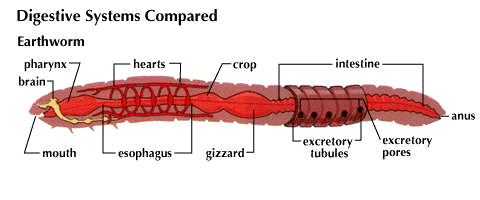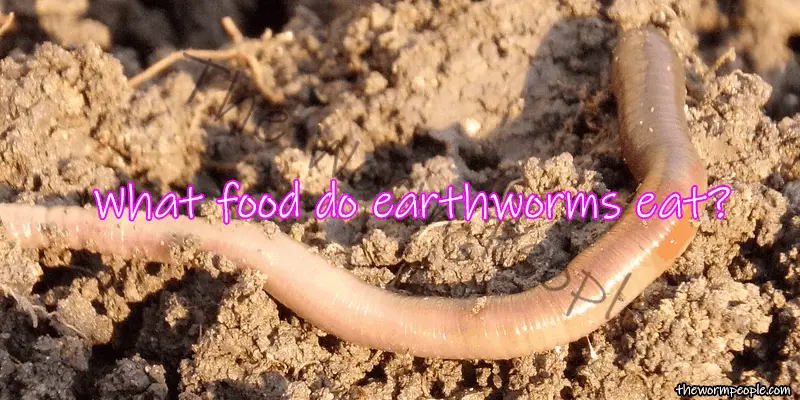
Jeffery Jago is a expert in horticulture and worm breeding. With a background in plant cultivation
Last Updated on March 26, 2024 by Jeffery Jago
Any intro I give to earthworms would be short of perfect given all the amazing things they do for us. By spreading nutrients they help our world grow. They break down the nasty stuff plants, animals, and humans leave behind. They also do so much more than I could possibly get into in a single article. So today let’s focus on their diet. What do earthworms eat?
What do earthworms eat?
TL;DR for skimmers
Earthworms eat all types of organic matter from dead animals to plant material. They will also consume various fruits, vegetables, and berries, fungi, and algae. Earthworms are also considered detritivores and not strictly omnivores.
Earthworms eat a large variety of organic matter. They also eat small microorganisms found all around us. Earthworms are considered omnivorous but, In a book named “In Earthworms” written by Sims and Gerard in 1985 they say it’s better to describe them as detritivores because they prefer to eat decaying animals and plant matter.
What type of plant matter? Well, Above ground worms will eat anything from dead grass to the leaves that fall from the trees. They will also consume various types of fruits, vegetables, and wild berries. Bellow ground they will feast on fungi, bacteria, and algae. Popular fungi that have been reported to be a favorite of some earthworm species are called mycorrhizal. It grows on the roots of various trees and plant species.
Not all species of earthworm, of which there are over 6000! eat soil for nutrients, But some do. These are classified as geophagous (eating of soil).
In the UK, for example, there are 4 classifications of earthworms. This includes all sorts of species, But in general, identifies how they live and what food they eat.
| Composting Earthworms | Generally seen when first starting to compost a new set up garbage or manure. They do the heavy lifting in the beginning of the decomposition process. |
| Endogeics Earthworms | A general worm, It’s often found in soils very high in organic matter. |
| Anecic Earthworms | This category actually brings food back to its den/burrow. It helps distribute nutrients. |
| Epigeic Earthworms | They call rotting logs and decaying plants home. Often eating any organic matter that’s mostly decayed. |
How do earthworms eat?
Ever wonder how earthworms eat? It’s really interesting!
Earthworms have no teeth, In fact, they swallow their food whole! They have a little flap that sort of act’s like lips that pushed and directs their food into the mouth hole. After that, the throat muscle takes hold, lubes it up with saliva, and slowly starts pushing it down the earthworm’s esophagus.
At the end of the esophagus, there is a small space called a crop. This is where food will remain until it’s ready to reach the gizzards, where it is ground up very fine until it’s passed onto the intestines to be absorbed and broken down. What the worm doesn’t use for energy is expelled out of the rear of the worm (anus). This super fertile nutrition-packed poop is called worm castings. Plant’s love this stuff.

What do earthworms drink?
Earthworms don’t drink like you or me and fluffy the cat. They absorb liquids from the soil with their skin. On that same note, Earthworms don’t breathe like we do either. They breathe by absorbing oxygen from the liquid and soil around their body. They can’t do this if they are dried out, tho. So it’s vital a worm always stays a bit moist.
How much can earthworms eat
Worms eat between half and 3/4 of their body weight in food every single day. So it varies based on worm species, size, and weight. If you are thinking of adding worms to your compost bin and don’t want to overfeed them, then a good rule of thumb is 1 pound of worms for every 1/2 pound of scrap or refuse every day.
It’ doesn’t seem like much but it really does add up. That’s 3 and a half pounds of food a week!
It’s important not to put in foods that won’t be consumed after a couple of days. Things like meat decompose and turn the soils bad for some time, and this will hurt or even kill your worms.

